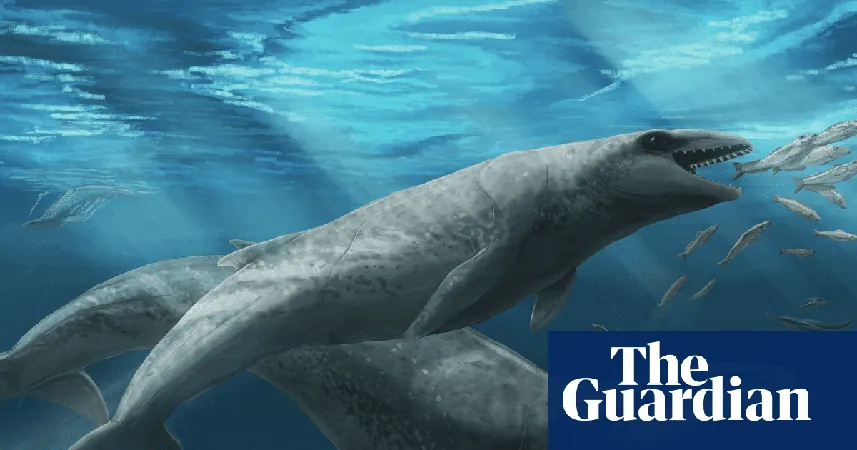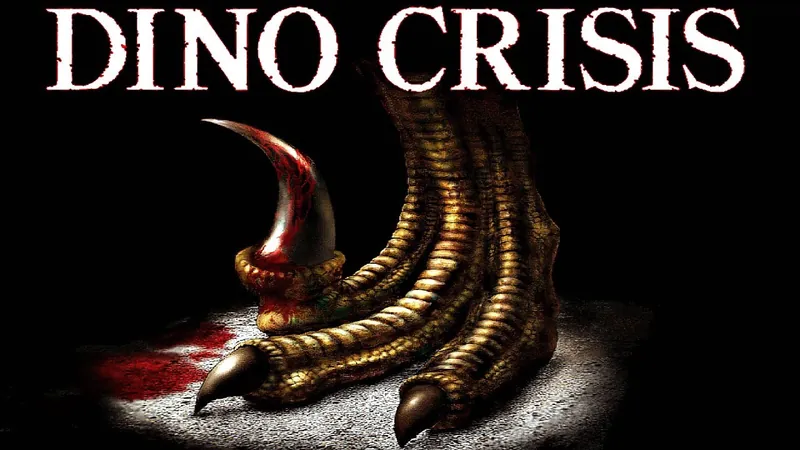
Meet the 'Deceptively Cute' Ancient Whale with Razor-Sharp Teeth Discovered in Australia
2025-08-12
Author: Wai
A Shocking Discovery on Victoria's Surf Coast
Hold on to your beach towels! Scientists have unveiled a stunning new species of ancient whale, affectionately dubbed Janjucetus dullardi, from a 25-million-year-old fossil unearthed along the scenic shores of Victoria, Australia.
Small But Deadly: The Shark-like Whale
This pint-sized predator, roughly the size of a dolphin, boasted razor-sharp teeth and a sinister appearance that suggests it was anything but harmless. "Small and deceptively cute, but definitely not harmless," noted Dr. Erich Fitzgerald, the senior curator of vertebrate palaeontology at Museums Victoria Research Institute.
A Look at Its Intriguing Features
Fitzgerald described the whale's skull as "almost over-engineered," featuring large eyes nearly the size of tennis balls and a stout snout equipped with deeply rooted teeth designed for gripping and tearing prey. Co-author Ruairidh Duncan likened it to a shark-like member of the baleen whale family, further emphasizing its unexpected ferocity.
A Precious Fossil Find
Janjucetus dullardi was recently detailed in the Zoological Journal of the Linnean Society following an astonishing fossil discovery that included a partial skull, ear bone, and eight teeth. Scientists believe this specimen was a juvenile, likely measuring around 2 to 2.2 meters long—shocking considering the species could grow up to 3 meters!
Earth's Warm Seas: A Vibrant Ecosystem
Living during the Oligocene epoch, roughly 30 to 23 million years ago, this ancient whale swam in a warmer climate that resembled today’s subtropical Australian waters. Dr. Fitzgerald shared that these seas teemed with diverse life forms, including early dolphins, giant penguins, sharks far larger than today's great whites, and an array of other remarkable marine creatures.
A Gateway to Understanding Evolution
Prof. John Long, a palaeontologist from Flinders University who wasn’t part of the study, hailed this fossil as a remarkable find that could unravel the evolutionary journey of carnivorous whales transitioning into filter feeders. Studying these fossils is essential to understanding how modern baleen whales evolved their unique characteristics.
A Community Effort in Palaeontology
This groundbreaking discovery owes a great deal to the efforts of local resident Ross Dullard, who stumbled upon the fossil while out on a beach stroll in 2019. Recognizing its importance, he donated the fossil to the museum, leading to the species being named in his honor. This serves as a poignant reminder that in the world of palaeontology, significant finds can happen right in your own backyard.
Victoria's Fossil Legacy
Fitzgerald highlighted the wealth of fossil discoveries in Victoria, urging budding paleontologists to keep their eyes peeled. As Prof. Long reminisced about his own childhood fossil hunts in Melbourne, he emphasized that Victoria harbors fossils across nearly all geological periods—if you know where to look.



 Brasil (PT)
Brasil (PT)
 Canada (EN)
Canada (EN)
 Chile (ES)
Chile (ES)
 Česko (CS)
Česko (CS)
 대한민국 (KO)
대한민국 (KO)
 España (ES)
España (ES)
 France (FR)
France (FR)
 Hong Kong (EN)
Hong Kong (EN)
 Italia (IT)
Italia (IT)
 日本 (JA)
日本 (JA)
 Magyarország (HU)
Magyarország (HU)
 Norge (NO)
Norge (NO)
 Polska (PL)
Polska (PL)
 Schweiz (DE)
Schweiz (DE)
 Singapore (EN)
Singapore (EN)
 Sverige (SV)
Sverige (SV)
 Suomi (FI)
Suomi (FI)
 Türkiye (TR)
Türkiye (TR)
 الإمارات العربية المتحدة (AR)
الإمارات العربية المتحدة (AR)